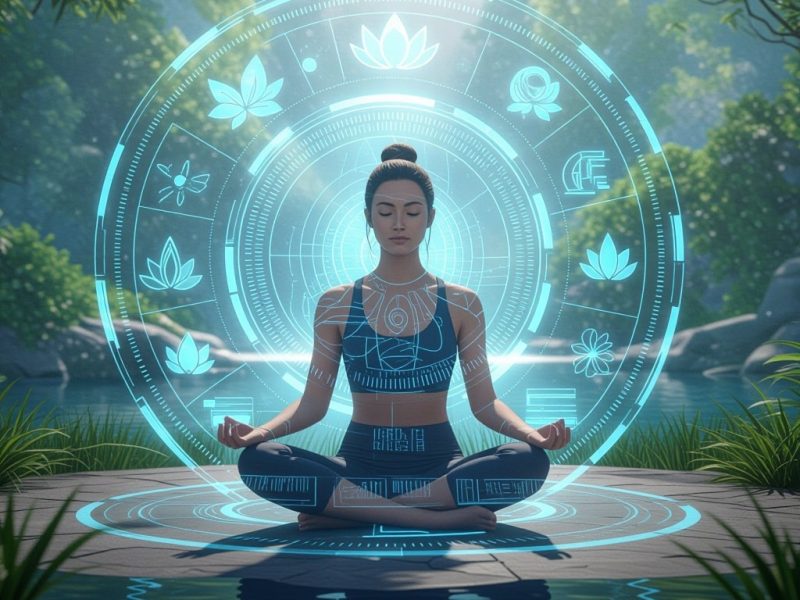Introduction: A Hyperconnected World, a Tired Mind
We live in an age where everything is accessible in milliseconds. Information flows faster than thought, screens dominate our days, and the line between real and virtual life continues to blur. While this digital revolution has transformed the way we live, work, and connect—it has also triggered an equally powerful mental health crisis.
In 2025, the world is finally turning its full attention to mental wellness. From AI-powered therapy to ancient breathing techniques, humanity is embracing both innovation and tradition to navigate the complex terrain of emotional well-being. This blog explores the evolution of mental health in our digital era—and how people are reclaiming peace, balance, and clarity in a tech-saturated world.
1. The Mental Toll of Constant Connectivity
It’s no secret that technology is both a blessing and a burden. Notifications, endless emails, social media comparisons, and remote work have created a sense of “always being on.” This digital overstimulation contributes to:
- Sleep disorders due to blue light and overthinking
- Digital burnout and decision fatigue
- Depression linked to online comparison culture
- Social isolation, despite hyper-connectivity
- Anxiety triggered by information overload
Ironically, in trying to stay connected, many have disconnected from themselves. 2025 has become a year of recalibration—of learning when to unplug, pause, and return to mental clarity.
2. AI-Powered Therapy: A Revolution in Mental Health Access
Technology, when designed with empathy, can become a savior rather than a stressor. The rise of AI therapy platforms is a game-changer in 2025:
- Virtual Counselors: Trained AI chatbots offer 24/7 listening ears, mood tracking, and cognitive behavioral therapy (CBT) suggestions.
- Voice Emotion Analysis: Apps detect emotional patterns through speech and recommend interventions.
- Multilingual AI Support: Mental health is now inclusive, with support available in local languages worldwide.
Though AI cannot replace human empathy entirely, it fills a crucial gap—making mental health support accessible, affordable, and stigma-free.
3. Digital Detoxes: Reclaiming the Mind
Digital detox is no longer just a trend—it’s a necessity. People are consciously choosing moments of digital silence to reset their nervous systems. In 2025, popular detox methods include:
- Phone-Free Weekends: Families and individuals disconnect from all screens for two days weekly.
- Nature Retreats: Wellness centers in forests and mountains offer tech-free experiences infused with yoga and meditation.
- Social Media Fasts: Monthly breaks from social platforms help reduce dopamine addiction and online comparison.
Silence is becoming a sacred medicine. And people are rediscovering the magic of real-world presence and connection.
4. Mindfulness Goes Mainstream
Mindfulness is not just for monks anymore. In 2025, it’s embedded into daily routines, classrooms, and corporate offices:
- Mindfulness Apps: Tools like Headspace and Calm now integrate personalized daily check-ins, breathwork, sound healing, and AI-guided meditation.
- Corporate Zen Rooms: Companies now have meditation spaces with biometric relaxation chairs and soundscapes.
- Mindful Commutes: Trains and buses offer “quiet journeys” with mindfulness music and focus lights.
By learning to slow down and observe the moment, people are reclaiming their mental sovereignty in a busy world.
5. The Role of Ancient Wisdom in Modern Healing
Surprisingly—or perhaps inevitably—the ancient world is making a comeback. Practices from Ayurveda, Taoism, Stoicism, and Yogic philosophy are being integrated into mental wellness regimens.
- Pranayama Breathing: Controlled breathwork to calm the nervous system, now taught in schools and apps.
- Vedic Astrology: Personalized planetary insights guide emotional cycles and self-understanding.
- Mantra Healing: Sanskrit chants are used in meditation to regulate brain waves and emotional balance.
People are recognizing that modern problems sometimes require ancient solutions.
6. Community Healing and Digital Empathy
While virtual interactions can be draining, they also offer unprecedented opportunities for support. Online healing communities are thriving:
- Group Therapy on VR Platforms: Metaverse-based circles offer anonymous group therapy with avatars and digital privacy.
- Support Groups on Discord: Mental health servers offer 24/7 access to peer support and safe spaces.
- Digital Empathy Campaigns: Influencers now promote authentic emotional vulnerability over polished perfection.
The web is no longer just a platform—it’s a potential sanctuary when used with awareness.
7. Sleep Tech and Emotional Hygiene
Good sleep is foundational to mental wellness. In 2025, sleep tech has reached new heights:
- Smart Mattresses: Beds that monitor sleep cycles, adjust temperature, and deliver white noise and scent therapies.
- Lucid Dream Trainers: Wearables that guide dreams for deeper subconscious healing.
- AI Sleep Coaches: Apps that design routines based on circadian rhythms and emotional states.
Sleep is no longer an afterthought—it’s a wellness cornerstone.
8. Lifestyle Design for Mental Clarity
Mental health is no longer seen in isolation. People are now designing entire lifestyles that support emotional wellness:
- Work-life balance built into daily schedules
- Creative expression through art, writing, music, or dance
- Nature exposure as a non-negotiable daily practice
- Minimalist digital environments to reduce visual clutter
Healing is holistic—and lifestyle design is the canvas.
9. Mental Health in Schools and Youth Programs
The youth of 2025 are growing up in a new world of emotional literacy. Schools now include:
- Daily emotional check-ins and journaling time
- Classes on stress management, boundaries, and self-compassion
- Guided meditation and visualization breaks between subjects
Children are learning that it’s okay to feel, to pause, to rest. Emotional intelligence is finally being taught like math or science.
Conclusion: A Conscious Digital Evolution
The digital age is not inherently destructive. It is powerful. And like all power—it demands intention, boundaries, and mindfulness.
In 2025, the conversation has shifted from “digital overload” to “digital harmony.” With smart interventions, ancient practices, and a growing global awareness, we are learning to coexist with our screens—without losing ourselves in them.
Wellness is no longer a luxury. It is a necessity. And this generation is learning to prioritize peace over performance, stillness over speed, and mental clarity over constant connectivity.


